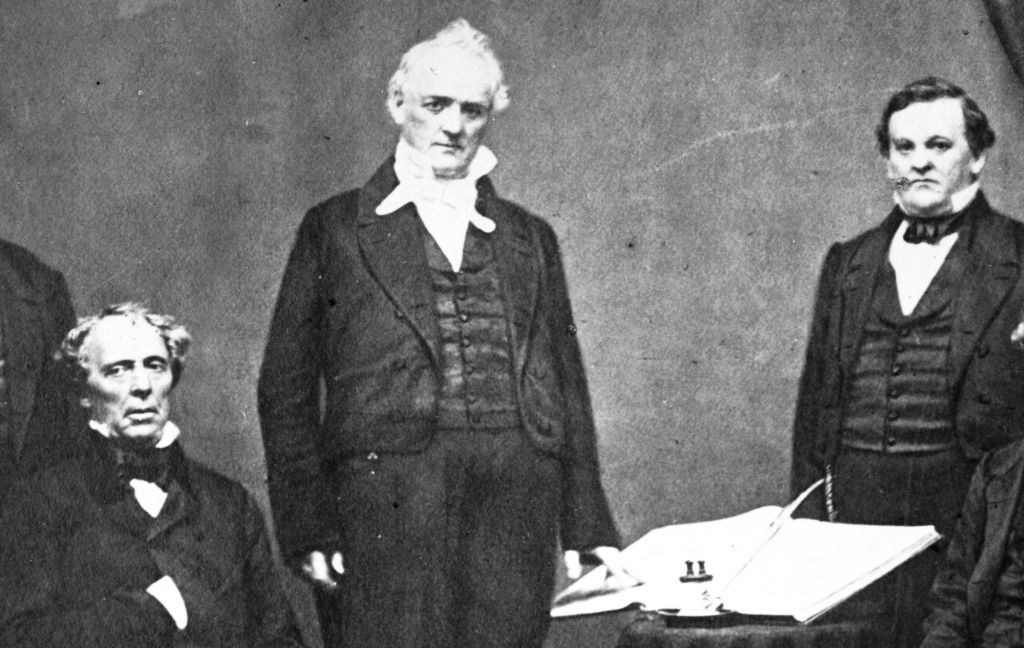Authors:
Historic Era: Era 4: Expansion and Reform (1801-1861)
Historic Theme:
Subject:
February/March 2021 | Volume 66, Issue 2


Authors:
Historic Era: Era 4: Expansion and Reform (1801-1861)
Historic Theme:
Subject:
February/March 2021 | Volume 66, Issue 2
Many historians point to the presidency of James Buchanan as the nadir of antebellum public ethics. All of the trends of corruption at the lower ranks of the government seemed to culminate in three years, and the rate of exposure increased dramatically.
Republicans — the new Republican Party had become the nation’s second party by 1856 — and anti-administration Democrats alike fostered a multitude of congressional investigations of custom houses, navy yards, post offices, and the public printing. These revealed not only executive turpitude but also congressional corruption, not only activities during Buchanan’s term but sleazy practices during the entire 1850s and even earlier.
There is ample evidence of improper, if not outrightly illegal, Democratic actions to carry the elections of 1856 and 1858, actions of which Buchanan apparently was aware and in which some of his closest friends participated. Whether or not Buchanan directed or approved these activities, he apparently condoned them, for he made no attempt to stop them. Many of these would be exposed by the Covode Committee in 1860.
See also "Was The Secretary Of War A Traitor?" by W. A. Swanberg
The wide net cast by the Covode Committee did not cover all the abuses of Buchanan’s cabinet, nor did it raise the most embarrassing allegations against the men around the President. The most discomforting problems came with Secretary of War John B. Floyd. Buchanan’s egregious weakness in dealing with that cabinet officer and delay in decapitating him are as incomprehensible as they are reprehensible.

The Virginian Floyd does not appear to have profited personally from the War Department contracts or to have realized always how he was exploited. He was simply a careless administrator who tried too hard to please his friends and fellow party members. In 1858, for example, a congressional committee discovered some shady deals that Floyd had arranged to benefit his friends. When the army decided to build a new fort near New York City, Floyd asked some Democratic politicians there to find a suitable site. They quickly formed a syndicate, bought at a price of $130,000 some land which army engineers had earlier rejected,